What is a Smart City?
A "Smart City" is not just a concept but a tangible reality that is reshaping urban areas. It harnesses innovative electronic methods and sensors to gather data, enhancing urban dynamics' efficiency. This data-driven approach optimizes the management of assets, resources, and services, ensuring smoother processes and significantly improving the quality of life for residents. The adoption of technologies like IoT, AI, and 5G networks is not just a trend but a strategic move towards a modern, efficient, sustainable, and improved urban environment, offering a promising future for urban living.

Key Components
The term "Smart City" encompasses various technologies and key elements designed to enhance residents' quality of life. One crucial element is the unified data platforms that integrate information from city services like transportation, energy, and healthcare. These platforms act as a central nervous system, offering comprehensive insights into urban processes and enabling efficient decision-making. Smart Cities depend on these core components and technologies to collect data and streamline processes, making urban living more efficient and effective.
Connectivity
Connectivity plays a crucial part in smart cities serving as the backbone for smart and sustainable technologies that frequently use sensors. Circular connectors and industrial ethernet enable fast, reliable, and deterministic real-time data transmission between sensors, actuators, and other automation components, which is essential for the Internet of Things (IoT). Connectivity ensures that IoT is running properly, and devices are interconnected with seamless data transmission and power supply. In this context, 5G networks and high-speed internet play an important part in enabling effortless wireless connections and seamless communication among devices. More information on our products used in Smart Cities can be found here.
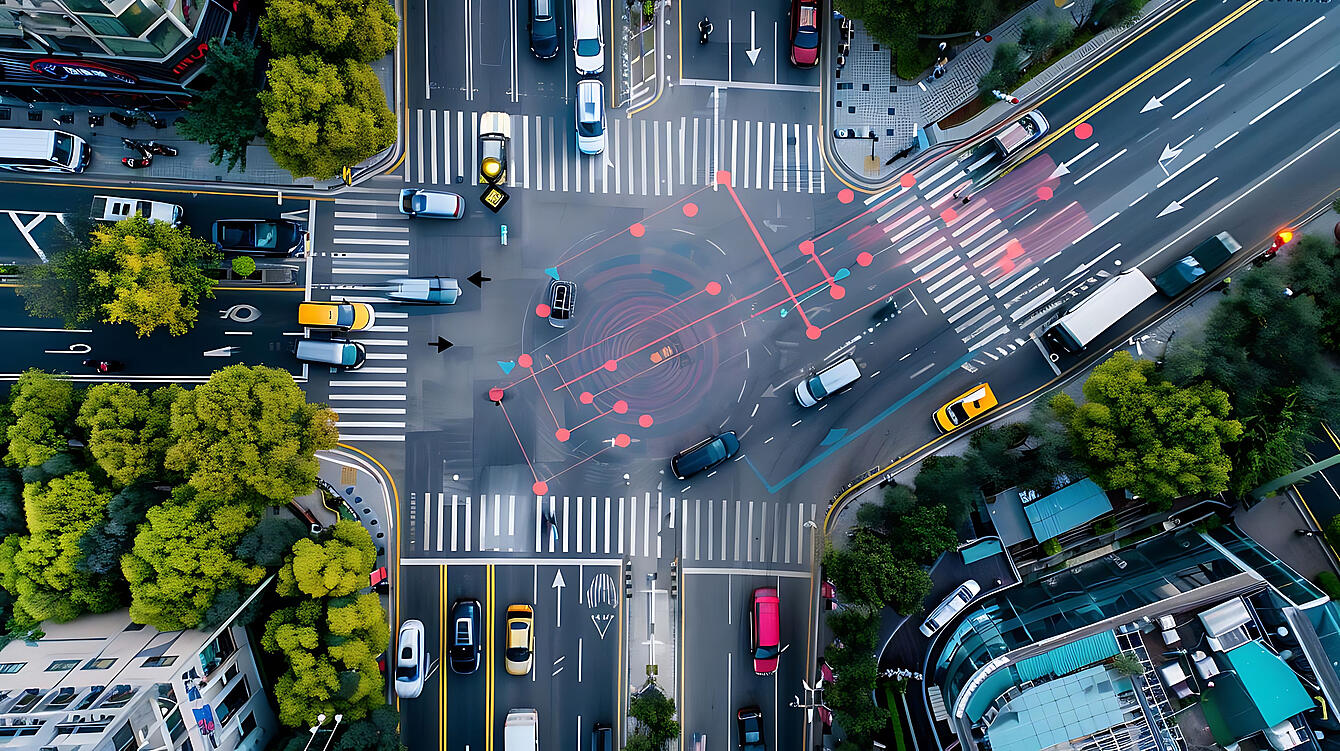
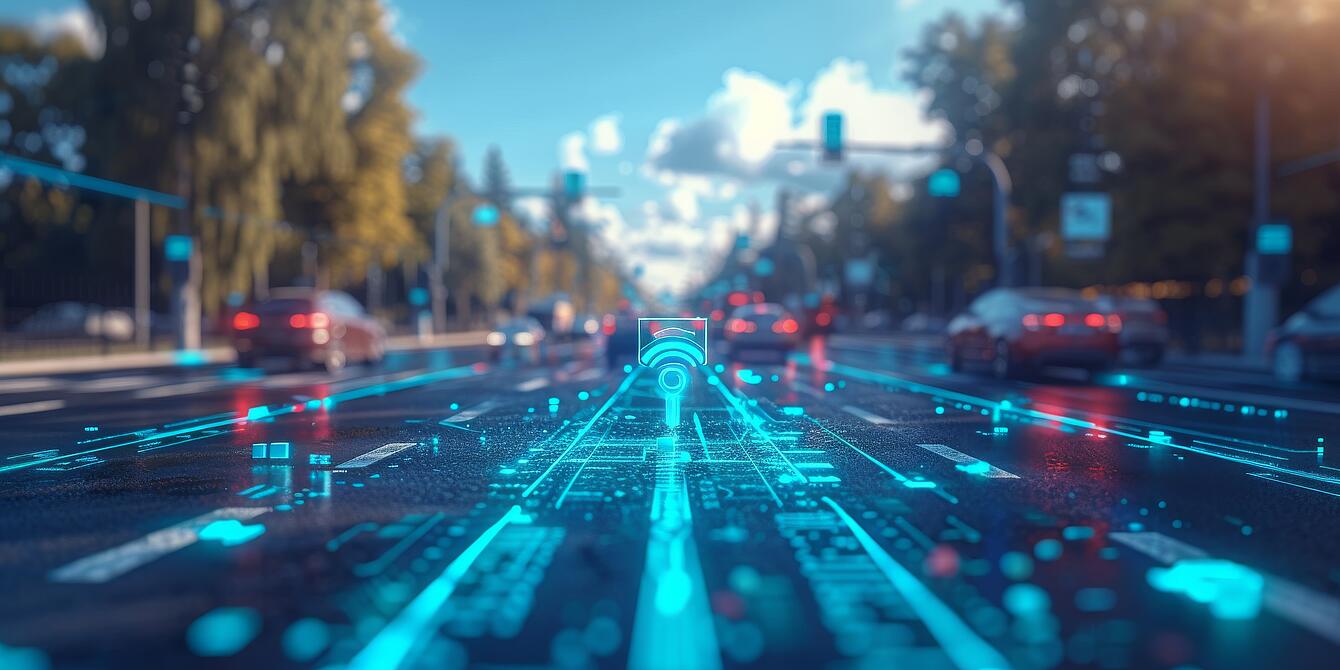
Data analysis
Big data is another essential factor of Smart Cities as it enables government officials to make informed decisions using technologies like AI. Machine learning automates these processes by identifying patterns, making predictions, and optimizing real-time decisions, thereby enhancing the efficiency and effectiveness of urban management.
Technologies and Applications
Industry 4.0 has driven significant advancements across various sectors and fostered the development of emerging technologies and applications. In the context of Smart Cities, Industry 4.0 has revolutionized numerous technologies, leading to substantial progress in infrastructure, sustainability, public services, governance, and environmental management.
Infrastructure
In Smart Cities, residents can benefit from improved infrastructure through smart grids and intelligent transportation systems. Smart grids are advanced electricity networks that utilize sensors and software to balance supply and demand in real-time. This ensures a stable electricity supply while minimizing costs.
Smart transportation is another aspect of smart cities that optimizes management systems, time-savings, and overall cost for residents. Options are diverse, ranging from more efficient methods for finding parking spots to implementing car-sharing solutions in cities with less developed public transportation infrastructure. The goal is to offer the best possible public transportation service in terms of time efficiency and comfort.

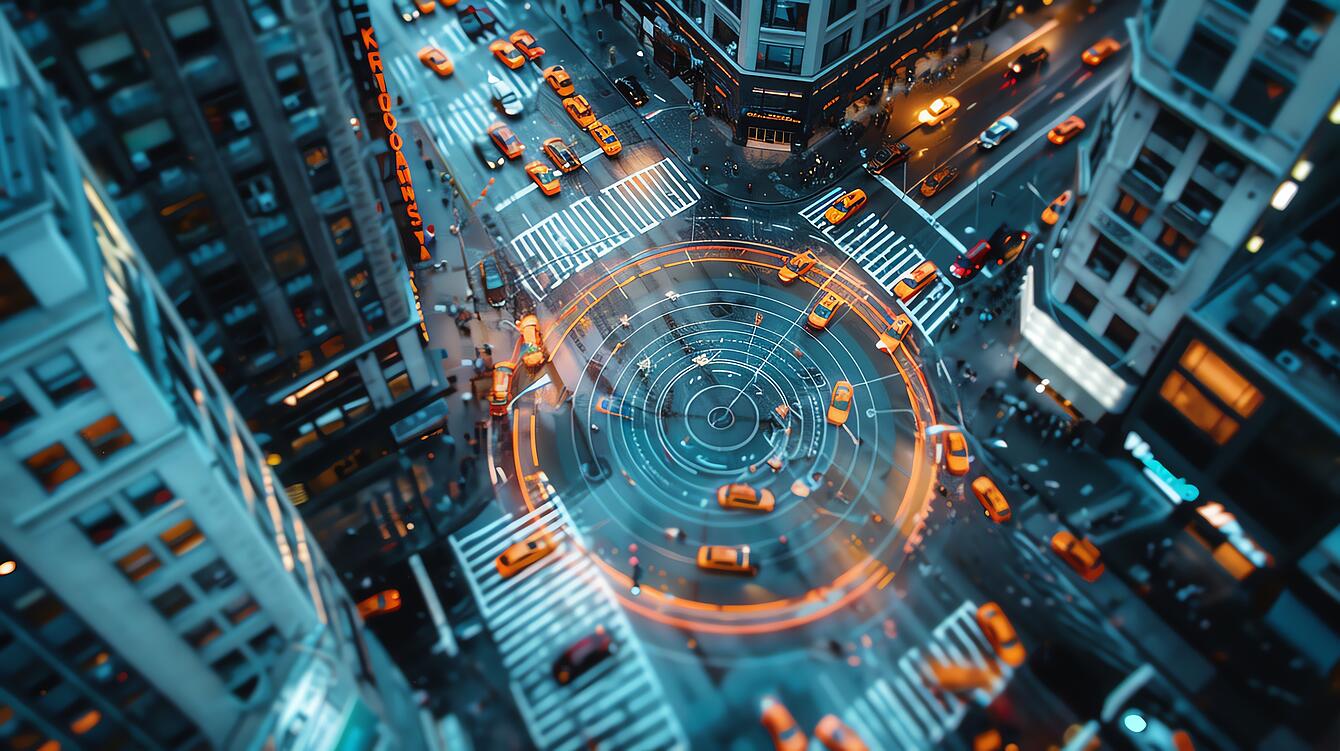
Sustainability
A significant aspect of smart cities is sustainability and eco-friendly operations to ensure our planet's and future generations' well-being. There is a strong emphasis on energy efficiency, achieved through smart utility meters, smart grids, renewable energy sources, and various other energy-saving methods.
Smart water meters and leak detection systems are employed to optimize water resource usage to ensure sustainable and clean water. Modern sewage treatment plants and advanced water filtration systems are crucial, as water quality significantly impacts human health.
Environment
Living in an urban environment with clean air, effective recycling processes, and abundant green spaces is essential for the overall quality of life. Using real-time sensors, air quality monitoring tracks pollution levels, enabling government officials to make informed decisions to improve air quality. Waste management can be optimized through sensors and data analysis, enhancing waste collection, and making recycling more efficient. The concept of Smart Cities prioritizes green urban areas that offer a natural habitat feel. Data insights guide the selection and maintenance of green spaces while technologies optimize watering processes and soil moisture measurement. The potential for innovative applications in this domain is vast.


Governance
Technological advancements will streamline bureaucratic processes and shorten preparation times through automated online systems. Ideally, Smart Cities will enhance transparency and encourage active citizen participation via online platforms. The aim is to lower barriers and make participation and bureaucracy more convenient for everyone.
Furthermore, smart surveillance can help in enhancing the security and safety of Smart Cities. An improved surveillance system will help the policy to operate more efficiently and implement preventive actions based on data-driven insights.
Other aspects of public services
In Smart Cities, the public sector will better serve residents through smart, affordable healthcare systems and data-driven health services. The aim is to provide healthcare to as many people as possible at the lowest cost. This approach extends to education, enhancing accessibility to digital platforms and increasing impact through personalized, data-driven educational programs.
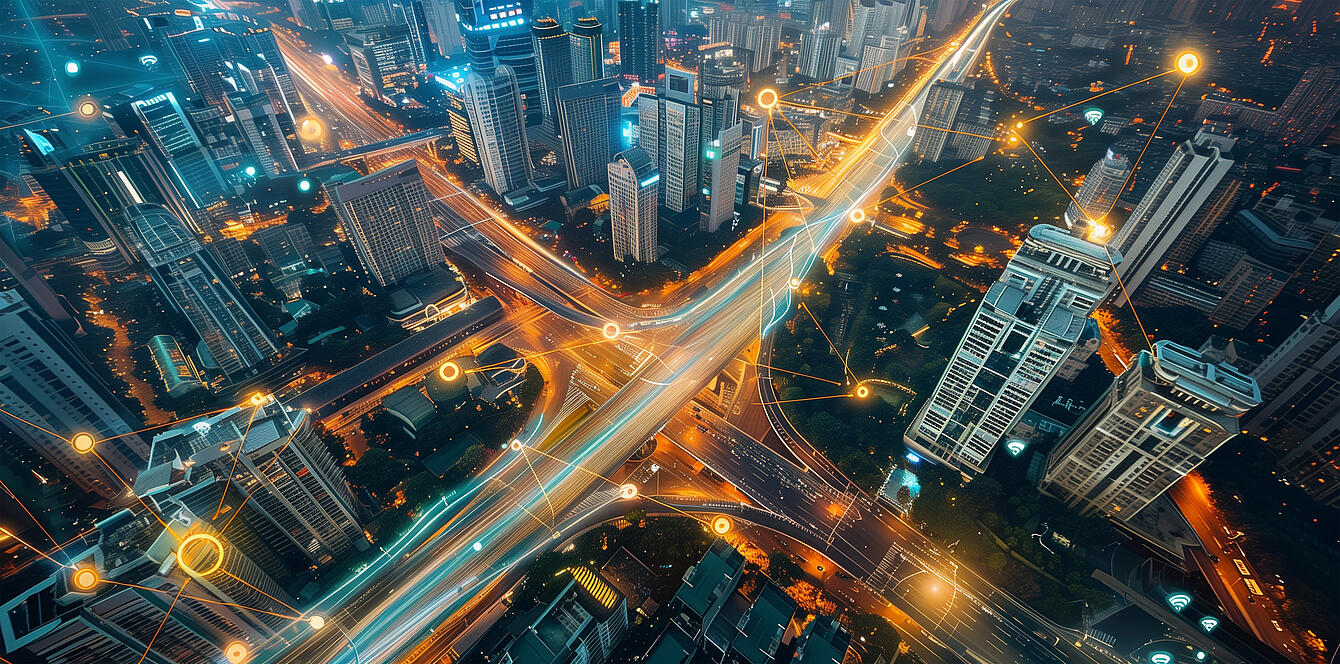
The next stage of cities is being created now, and it is just a matter of time before the innovative ideas of Hollywood producers come to reality. Many cities have already incorporated various aspects of Smart Cities and can be classified as pioneers in this movement. Here are a few examples:
Barcelona has a well-connected IoT network that enables efficient urban management of traffic and streetlights. The city has also prioritized improving air quality and noise levels through collaborative efforts driven by data collection.

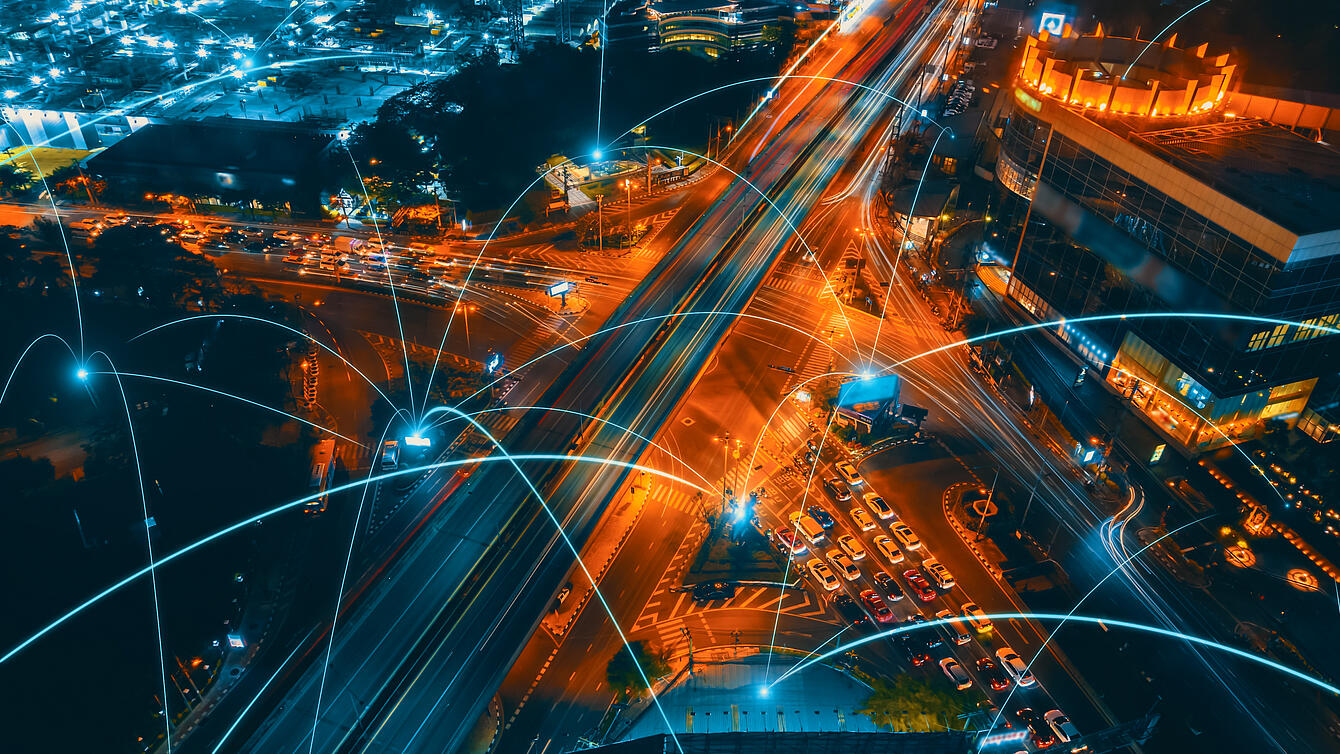
Dubai has implemented a "Smart City Plan" to improve urban mobility, environmental efforts, economy, and governance over the next years. The city is heavily invested in renewable energy and streamlining processes through AI.
Singapore is one of the “smartest” cities in the world because the government promotes incorporating technologies in all aspects of life, including digital healthcare, smart transportation, water management, and green buildings.
Why is binder part of this urban development?
Our core values align with the overall goals of Smart Cities: to contribute to a better tomorrow. The aspects of sustainability, innovation, and improving the lives of our current and future generations go hand in hand with the binder DNA.
On top of that, circular connectors play a key role in this movement, so binder can actively be part of this innovative urban progression into a better future. Most innovative applications in Smart Cities are data-driven and require connectors, sensors and actuators to collect the data and provide insights.
Due to our broad product portfolio, binder has many connectors and other products that have already been used or could be used in applications as part of the Smart City movement.
Here is a list of notable binder products that are commonly used for sensors and other related technologies:












